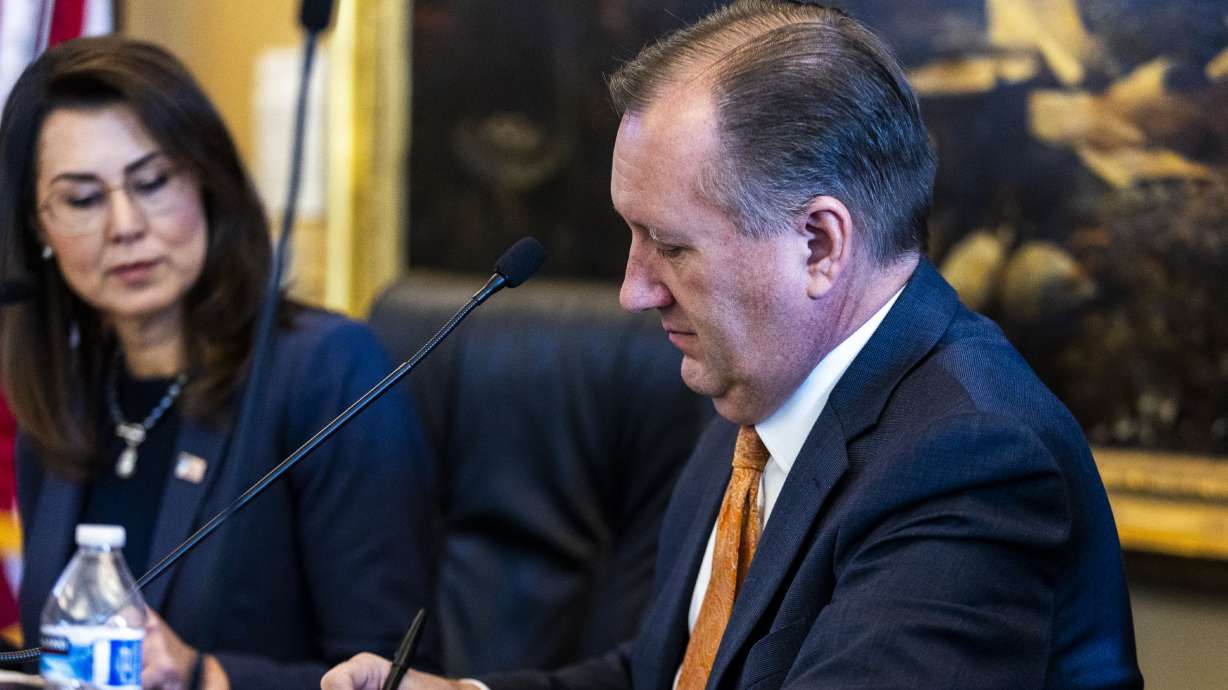Estimated read time: 2-3 minutes
- Utah Auditor John Dougall recommends increased transparency in Utah's signature-gathering process.
- Conflicting statutes complicate balancing voter privacy and public transparency in elections.
- Dougall urges statutory changes to enhance trust in Utah's election integrity.
SALT LAKE CITY — Utah Auditor John Dougall recommends the state improve transparency in the signature-gathering process to qualify for the primary ballot and said conflicting statutes of election code make it difficult to balance voter privacy and public transparency.
The audit comes after former Republican gubernatorial candidate Phil Lyman and others challenged the signatures Gov. Spencer Cox collected to qualify for the ballot, though preliminary results from the audit found it "statistically likely" that the governor had the requisite signatures.
"Existing statute places election officials in an untenable position with one portion of code calling for greater transparency over the candidate petition signature verification process while another position of statute demands voter privacy. It is unclear how election officials can avoid compromising privacy for transparency," Dougall, who leaves office next week, said in a statement.
"Furthermore, voters who request privacy protections for their voter registration records may be lulled into a false sense of security, given how freely that data may be shared and the lack of any follow-up to ensure sensitive data is protected."
The audit is one of several investigations into the state's election system this year after legislative auditors found some 1,400 voters who are believed to be dead on the state's voting rolls and recommended improvements to the process of verifying signatures on ballots and ballot access petitions.
Dougall detailed his findings in a letter to Lt. Gov. Deidre Henderson, writing that his office found a "rigid protection" of voter names on ballot access petitions compared to a "rather broad disclosure of information allowed by statute for voter registration data." He said his office received redacted ballot petitions, but that without being able to fully review the information, "a requestor ... is unable to independently assess the integrity of the petition signature validation process. This has the potential to reduce public trust in a portion of the election process."
"These issues impede the petition process' transparency, potentially weakening the public's trust in the integrity and reliability of that election process," Dougall wrote. "We encourage you to recommend remedial statutory changes during the upcoming legislative session."
The audit notes several areas where state code can be improved, by potentially providing for poll watchers to observe the verification of ballot petition signatures, changing statute language to treat similar data in the voter registration database and on ballot petitions consistently and to add an enforcement mechanism for handling private voter registration data.
"Addressing the issues identified in this report should promote greater trust in the election process," Dougall wrote. "We hope that you and the elections office will take any unilateral measures available to you to improve the process and that you use your influence in the election realm to argue for statutory amendments that will promote greater confidence in the integrity of Utah's elections."









